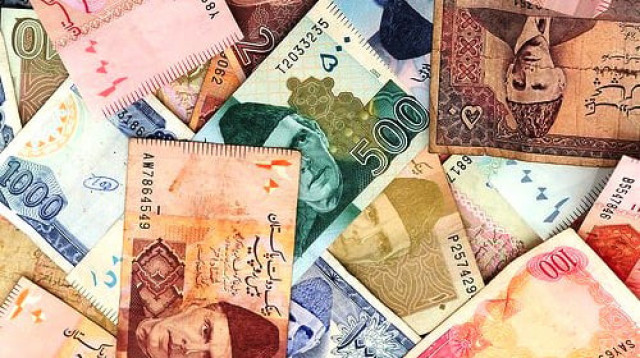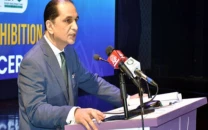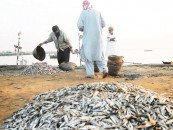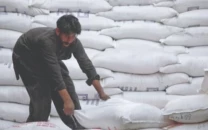Rs118b sought to bear cost of oil price freeze
Funds will be paid to oil firms to cover price differential claims for May

The Petroleum Division is seeking allocation of Rs118 billion to bear the cost of freezing petroleum prices, which have surged in the global market due to the Russia-Ukraine war.
The government has projected subsidy claims of Rs336 billion from oil companies for March-June 2022 as petrol and diesel prices have been left unchanged for the past few months.
Sources told The Express Tribune that the Finance Division had endorsed the allocation of Rs52 billion for the first fortnight of May 2022 and indicated that the allocation for the next fortnight would be considered later.
The Petroleum Division has projected a total cost of Rs118.6 billion for the entire month of May, which the government will have to pay to the oil companies as they sell petroleum products at prices sharply lower than the actual rates.
The Economic Coordination Committee (ECC) of the cabinet will take final decision in this regard.
In order to cushion the impact of surging oil prices on the consumers, the previous government of Pakistan Tehreek-e-Insaf (PTI) announced a relief package on February 28, 2022.
Under the package, the government slashed prices of petrol and high-speed diesel by Rs10 per litre each. It also announced that oil prices would be kept unchanged till the announcement of next fiscal year’s budget in mid-2022.
The Russia-Ukraine war has led to a significant increase in oil prices in the global market, which has also impacted the domestic prices of petroleum products as Pakistan is a net importer of oil.
Following the imposition of the cap on oil prices, the petroleum levy and general sales tax (GST) on petrol and diesel were brought down to zero.
Read Oil rises on supply concerns
As a result, the price differential claims were projected at Rs336.01 billion for March to June 2022, which the government will give to the oil marketing companies (OMCs) and refineries.
To avert any fuel shortages in the market, the petroleum ministry officials suggested that “it is essential to create confidence in the oil marketing companies and refineries that any price difference borne by them during a fortnight will be released promptly.”
Therefore, the government has established a speedy disbursement mechanism for the price differential claims in consultation with the Oil and Gas Regulatory Authority (Ogra) and Finance Division, which has also been approved by the cabinet.
Under the action plan, the government has opened an assignment account where it will deposit funds, as provided by Ogra.
OMCs and refineries submit price differential claims fortnightly based on category-wise procurement of petroleum products and supported by relevant documents, certified by their external auditors.
They also share sales tax documents with Ogra as soon as these are submitted to the Federal Board of Revenue (FBR) for audit.
Sources said that the Finance Division would advise the Auditor General of Pakistan (AGP) to conduct an audit of the claims on the basis of the record submitted at the close of financial year including the sales tax documents. Any overpayment will be recovered by Ogra.
The government has committed to the International Monetary Fund (IMF) to increase prices of petroleum products to avoid subsidy payments.
However, it has not been able to meet the commitment so far due to the fear of political backlash. Still, the IMF will continue to put pressure on the government to raise petroleum prices if Pakistan wants to see the resumption of its loan programme.
On the other hand, the refineries are under pressure in the wake of pending price differential claims. The industry needs funds to ensure smooth supply of petroleum products as prices are high in the international market.
Published in The Express Tribune, May 13th, 2022.
Like Business on Facebook, follow @TribuneBiz on Twitter to stay informed and join in the conversation.



















COMMENTS
Comments are moderated and generally will be posted if they are on-topic and not abusive.
For more information, please see our Comments FAQ